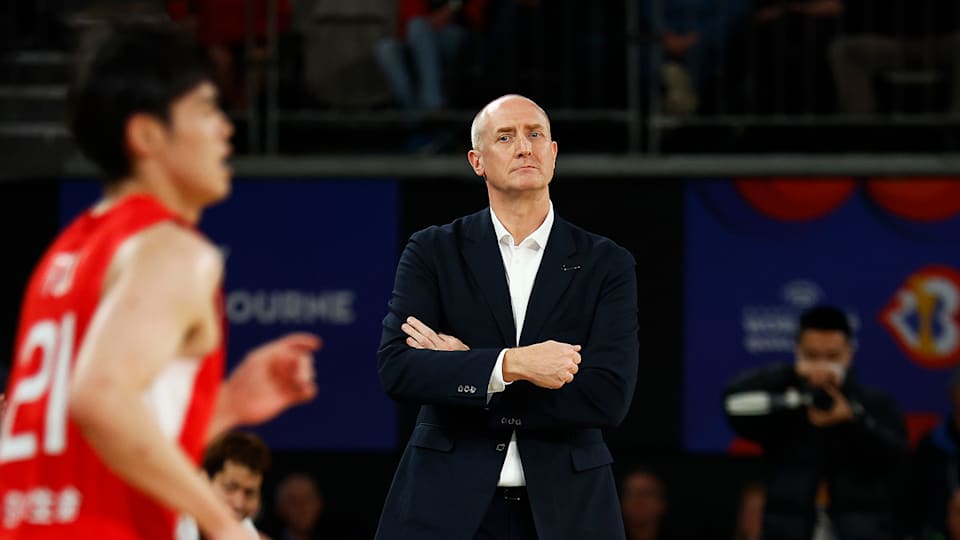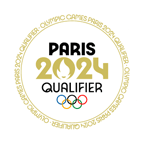Tom Hovasse's journey: Boosting Japan's hopes at FIBA World Cup 2023
After coaching the Japanese women to silver at Tokyo 2020 in 2021, the country's first-ever basketball medal, the American is plotting another masterstroke with the men. Read the exclusive interview with "Tom-san."

Call it a watershed moment for Japanese men’s basketball.
At the 2015 Rugby World Cup in England, Eddie Jones’ Japan stunned a planet by toppling South Africa in what is still said to be the biggest upset in tournament history.
Seven years later at the FIFA World Cup 2022 in Qatar, Japan slayed not one but two giants in Germany and Spain, and this March, they got it done at the World Baseball Classic, edging the United States in a sizzling final behind the one-of-one, the unicorn known as Ohtani Shohei.
Has the time arrived for Japanese men’s hoops to finally shine under the lights?
The nation's women won silver medals on home soil at the Tokyo 2020 Olympics in 2021, and now the man who will be pulling the men's team strings in front of home fans at this year's FIBA Basketball World Cup 2023, seems to think he might have something on his hands.
“We’re trying to usher in a new era of basketball,” Japan coach Tom Hovasse told Olympics.com at the start of training camp with his extended World Cup squad in June.
“The women really stepped up in the Olympics and everybody’s waiting for the men to do it.
“The B.League has been doing really well. But it can’t just be league driven. The national team and the league have to be in concert with one another.
“There are so many fans in basketball. They’re just waiting for the national team to do something. This could be a really big start for us.”
Tom Hovasse and the Japanese women's team stormed to a silver medal at Tokyo 2020.
Hovasse took over the men’s team in September 2021, a month after he masterminded the women’s team to their fully deserved silver, behind only the United States, at the Tokyo 2020 Olympic Games.
It was Japan’s first Olympic medal in basketball, period. Male or female.
Hovasse has been around the Japanese game a long time, since 1990, and the American does all his media in Japanese without an interpreter.
The man everyone affectionately calls “Tom-san” said he took away a lot during his four years in charge of the women as the team’s first foreign head coach in history.
“My women’s team, we used NBA sets, NBA, European, college philosophies,” he said. “Just the Olympic experience, we worked so hard and to see the players enjoy the journey that we went on - they were just so excited and happy.
“I learned from that. As a coach you get so focused and locked in on what you need to do, sometimes you don’t enjoy the moment. So they really opened my eyes to that.
“Now I’m trying to coach with a little bit more thinking about enjoying what I’m doing right now.”
The work has been cut out for Hovasse with the men, who, apart from Tokyo 2020 when they were hosts (three defeats from three group games), have not appeared at the Games since Montreal 1976. Their previous best result was at Tokyo 1964, where they placed 10th.
For Hovasse’s team to directly qualify for Paris 2024 via the 25 August-10 September World Cup (the games in Japan will be in Okinawa), Japan must finish as the highest team from Asia.
If they come up short but manage to finish as the second highest Asian team, they will be rerouted to the Olympic Qualifying Tournament (OQT) next year.
Hovasse will have to find Japan’s path to Paris without his best player Rui Hachimura, who chose to prioritise free agency and recovery over competing in the FIBA World Cup.
Hovasse, though, had been bracing for the possibility of the Los Angeles Laker not being available and made it clear that Hachimura’s absence will not detract from his team’s preparations.
“I’ve always told the guys, I’m going with the team that’s here - and the team that wants to be here. That’s been our thought process all along.
“For me, to not do it that way - we’re waiting, we’re waiting, we’re waiting - that’s kind of disrespectful to the guys who are here, and I would never do that because these guys work hard.
“I told them, we’re creating a good team whoever is going to be here.”
Are Hovasse and the Japanese men on the upward?
Japan scheduled nine warm-up games leading up to the FIBA World Cup, starting with a pair of friendlies against Chinese Taipei this Saturday and Sunday (8-9 July) in Shizuoka.
Japan will then tour through the Republic of Korea (20-24 July) followed by two home games vs New Zealand in Ota, Gunma Prefecture, on 2 and 4 August.
Their final three tune-ups from 15-19 August in Tokyo will be a true test, set to face Angola, Tokyo 2020 silver medallists France and last but not least, Luka Doncic and Slovenia, who were in Japan's group at the Games two years ago.
Japan open their FIBA Men's World Cup campaign on 25 August against Germany. They take on Finland two days later and Olympic bronze medallist Australia on the 29th to wrap up Group E.
“Right now, 80 per-cent of my focus is on Germany,” Hovasse said. “The closer we get to the tournament I’ll start putting in some Finland stuff and we’ll scout against that as well.
“Australia we know. Australia, we played them in the Asia Cup. Their style doesn’t change drastically. It’s just who’s going to be on the roster.”
It’s never easy to tell when sporting history is actually in the making. But for Hovasse and his players, at least things appear to be pointing in the right direction - in the direction of Paris and the 2024 Olympic Games, perhaps.
“This past year and a half - I think I’ve looked at close to 60 players - and throughout the six windows in the Asia Cup I was able to pretty much key in on the guys we need.
“The basketball is similar. My style is not going to change. It just took me a little bit of time to get the right players in position. I really like players who are hungry and who have a lot of energy - and I finally found that group.
“Our practices have been great, all of our camps have been really fantastic, just getting better and better and better. It was more about finding the right fits.”

